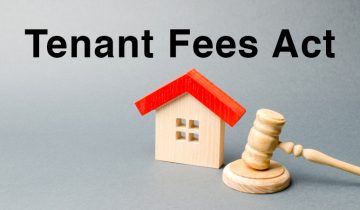“Assault” on Landlords “Contradicts Basic Principles of Sound Tax Policy”, Insists Think Tank
The Government’s “assault” on buy-to-let landlords “contradicts the basic principles of sound tax policy” and penalises investors for the housing crisis, insists the Institute of Economic Affairs (IEA). In a new report, the think tank claims that the Government’s recent tax changes for buy-to-let landlords defy “any basic economic analysis”. The publication, seen exclusively by Telegraph Money, calls for a major overhaul of the way that properties – particularly homes in the private rental sector – are taxed, especially as the IEA believes that landlords are being “discriminated against” compared with homeowners.
The organisation points out that, in some instances, landlords will face an effective tax rate of more than 100% after 2021, when tough new rules fully take effect. The authors of the report, Rosalind Beck and Philip Booth, two academics specialising in the property market, warn that the changes are likely to result in higher rent prices for tenants and a fall in the supply of rental housing, as some landlords leave the sector altogether. The document warns that decent landlords are likely to be replaced by less reputable investors as a result of the tax changes.
Booth believes: “Recent tax changes to private rented housing will raise rents and reduce the supply of houses for rent.“The Government, under policies set in train by Mr. [George] Osborne, is subjecting private landlords to a sustained assault, by increasing Stamp Duty and not allowing finance costs to be fully deducted for tax purposes.” He adds: “This policy contradicts the basic principles of sound tax policy, and the Treasury’s justifications are disingenuous. The policy may create situations in which over 100% of a landlord’s profit is due in tax.” The report suggests that the Government should reverse the changes to Stamp Duty and mortgage interest tax relief. Such changes have made the tax system “more complex and less economically coherent”, it insists.
The IEA says that discrimination between types of property should end; this means that homes held in corporate vehicles should not be treated in a more beneficial way than those owned by an individual landlord.Even if it were replaced by another form of property tax, the think tank would like to see Stamp Duty abolished altogether. “The Government has changed the tax system in a way which leads to private landlords being taxed more harshly than other forms of business,” the report claims.





